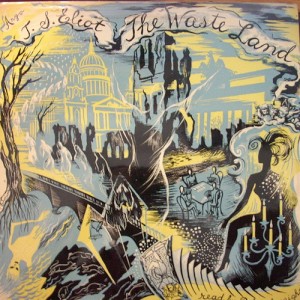Eliot’s Mosaic Wasteland
·
Good Heavens, what sort of nonsensical atrocity is this!? Cursed was the day that my eyes glanced upon these broken words. What does Eliot mean when writing from this hybrid language of abstraction and sorrow? I am reminded of the character Kurtz, you know, and his final words… the horror… and how I questioned as to what it could mean. Eliot seems to be presenting us with that same type of horror, again without answer.
And what of death? The soldiers that I read of last week feared the same death that this Sibyl longs for. Why long for such a gruesome thing, you know? The omniscient Sibyl longed for that which men in this poem feared to come by water. It isn’t as if the horrors are absent from this poem— does Sibyl only long for it because rebirth is promised? Or does the all-knowing figure become a pessimist once it understands the ways of life?
The fragments of time within this poem left my brain ticking. I feel some sort of revelation upon me. All of these moments within history, you know, to present day were all happening at once. This poem creates a mosaic of Truth with its overlapping postwar references and primitive foundations. “These fragments I have shored against my ruins,” by Jove! The speaker here makes plain his need for separation, for disconnection, to shore them against collapse- failure, you know. Otherwise, had one the knowledge that comes without fragmentation, they’d long for the same fate as Sybil…
My own thoughts alarm me. What is going on? I must lie down for a while.
